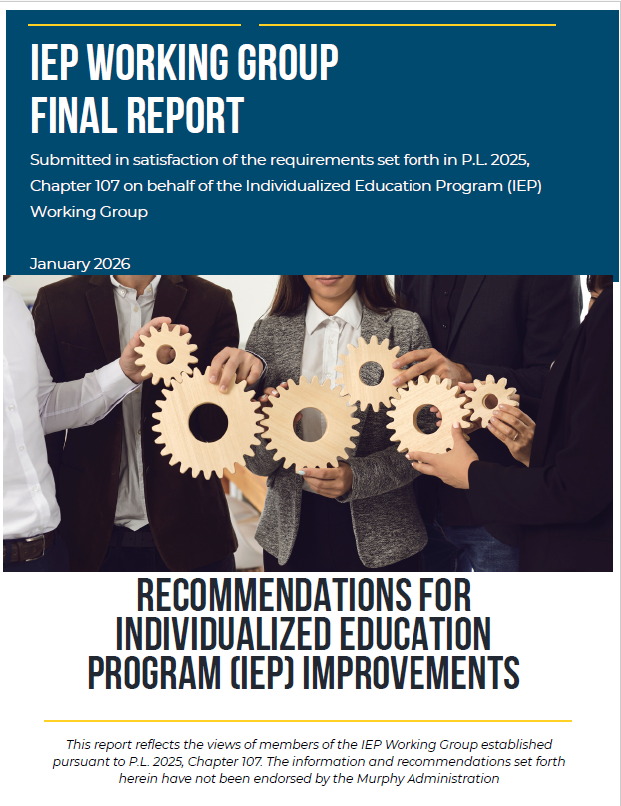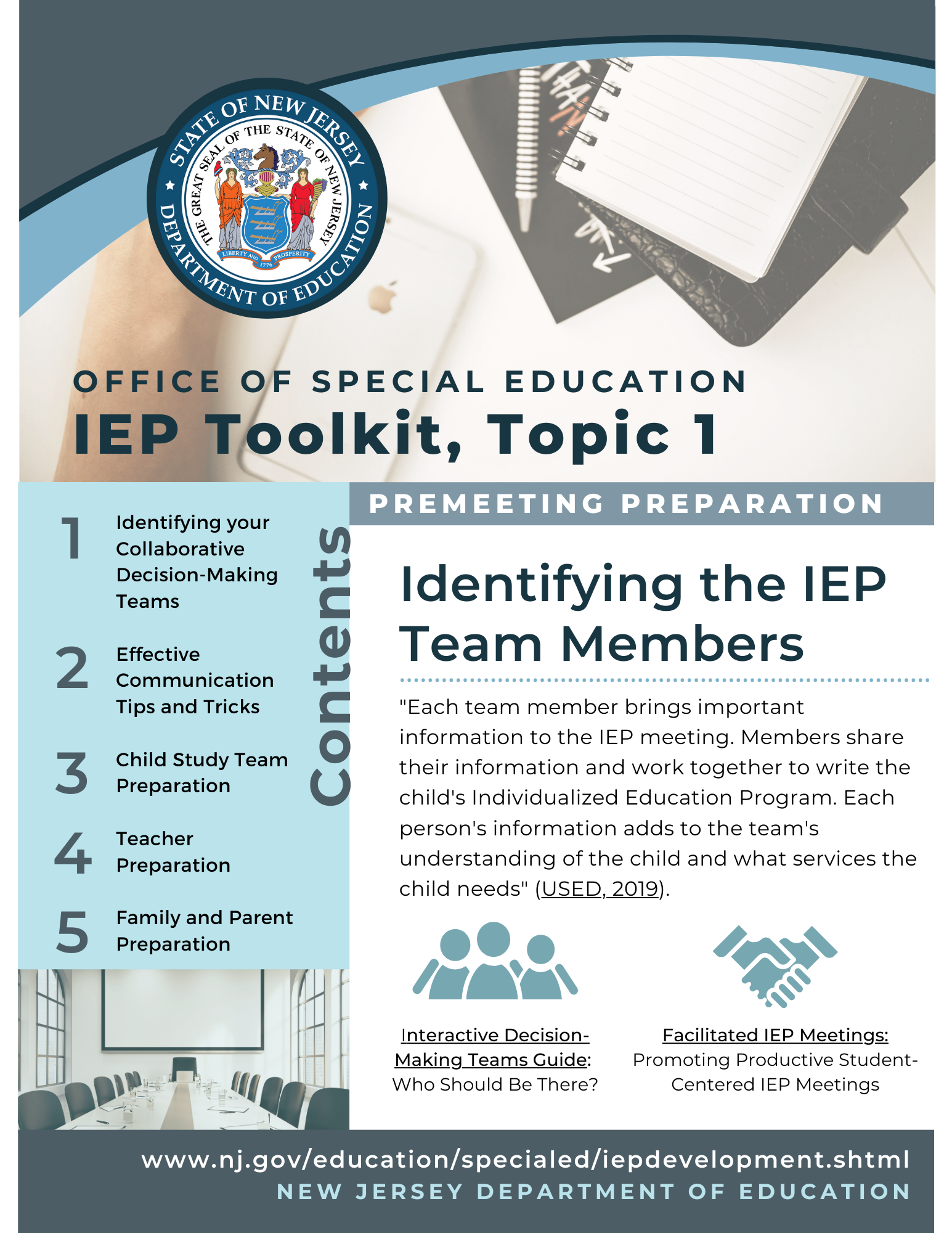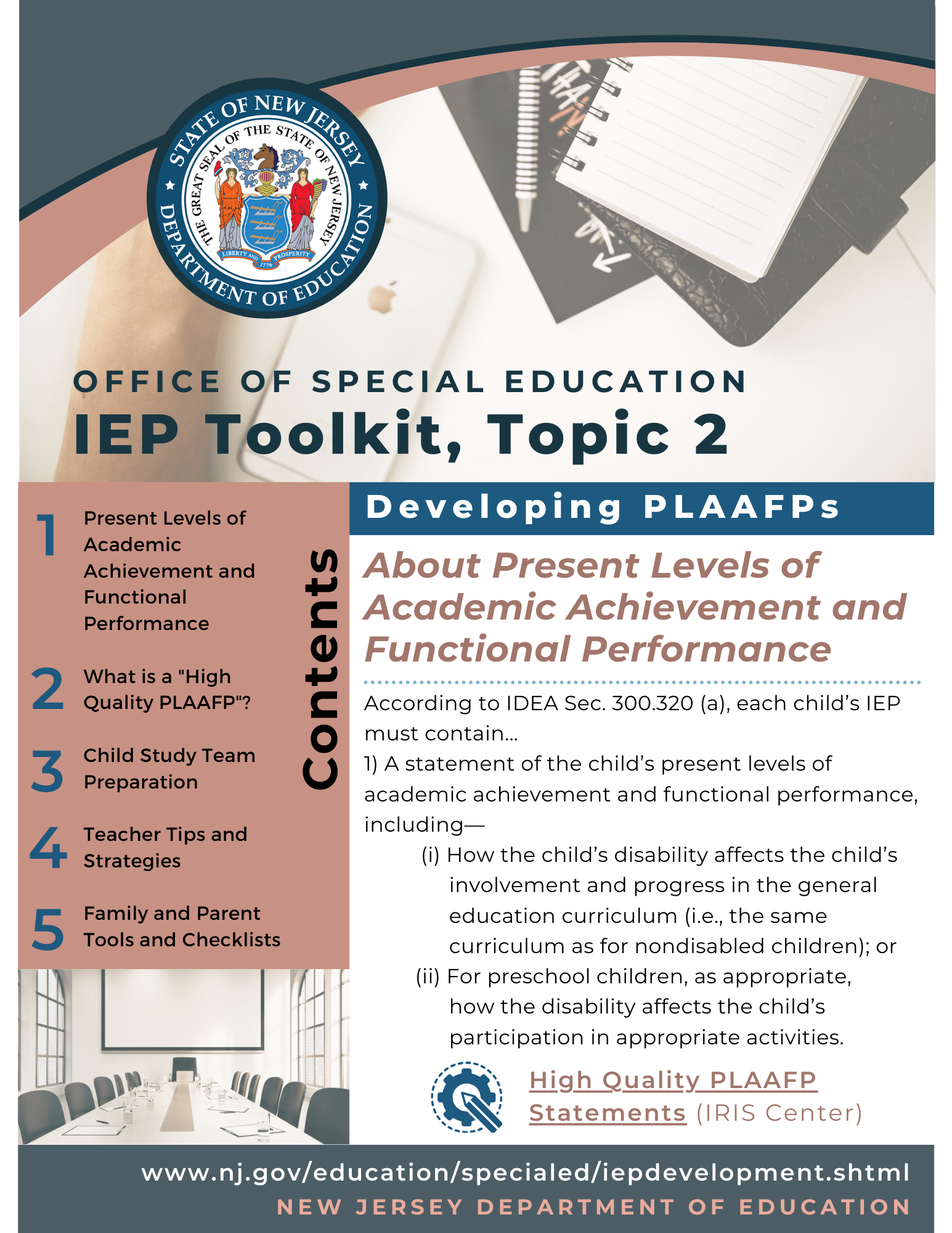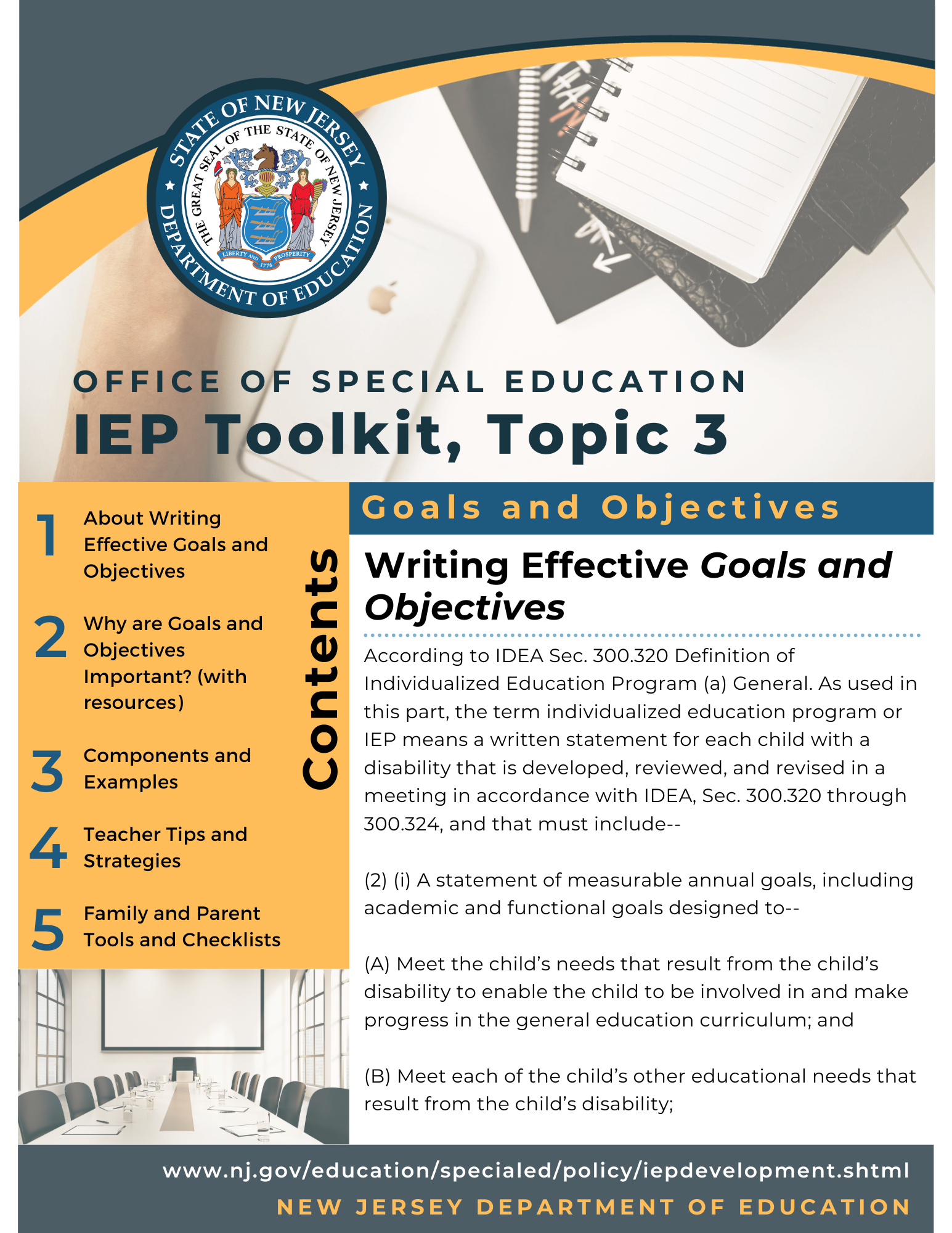IEP Development and Resources
The cornerstone of the IDEA is the entitlement of each eligible child with a disability to a free appropriate public education (FAPE) that emphasizes special education and related services designed to meet the child’s unique needs and that prepare the child for further education, employment, and independent living. 20 U.S.C. §1400(d)(1)(A). Under the IDEA, the primary vehicle for providing FAPE is through an appropriately developed IEP that is based on the individual needs of the child.
An IEP must take into account a child’s present levels of academic achievement and functional performance, and the impact of that child’s disability on his or her involvement and progress in the general education curriculum. IEP goals must be aligned with grade-level content standards for all children with disabilities. The child’s IEP must be developed, reviewed, and revised in accordance with the requirements outlined in the IDEA in 34 CFR 300.320 through §300.324.
Click here to learn more about the Office of Special Education's "Facilitated Individualized Education Program"
- Model IEP Template - (revised August 2023)
- Model Speech-Only IEP Template - Fall 2023
- Comprehensive Student Support Plan (printable)
- New Jersey Communication Plan for Students that are Deaf, Hard of Hearing, or Deaf-Blind (Form Fillable)
Use of the model forms is not required; however, providing the requested information will assist in expediting your request.
Annotated Sample Written Notice
Invitation to a Meeting:
- Identification/Evaluation Planning Meeting
- Invitation to a Meeting – Request for Excusal of Required CST Member
Area being discussed
Area not being Discussed - Student Invitation to an IEP Meeting - Transition Planning
Turning Age 14
Turning Age 16 - Consent to Invite Agency Representative(s)
Student
Parent - Consent to Invite an Early Intervention Service Coordinator to an Initial IEP Meeting
- Disciplinary Action
Notices Following a Meeting:
- Initial Identification/Evaluation Planning
Evaluation
No Evaluation - Initial Eligibility
Eligible
Not Eligible - IEP Review
- Reevaluation Planning
Assessment(s) will be conducted
No assessment will be conducted - Re-determination of Eligibility
Eligible
Not Eligible - Disciplinary Action
Interim Alternative Education Setting
Manifestation Determination
Additional Forms and Notices:
- Manifestation Determination
- Request to Amend an IEP without a Meeting
- Triennial Reevaluation Cover Letter and Waiver
- Notice of Transfer of Rights
Parent Version
Student Version - Summary of Performance
- Notice of Graduation
- Parental Revocation of Consent
Meeting - Notice of Revocation of Consent
No Meeting - Notice of Revocation of Consent
Other Forms and Documentation
- Private Schools for the Disabled Tuition Contract
- Initial Uniform Application Process
- Sample Service Plans for Eligible Students Parentally Placed in Nonpublic Schools
- SEMI Forms for Parents and Annual Consent
Development of the Transition Components in IEPs
- Preparing for Successful Transition Planning (see Toolkit Topic 6 above)
- Sample Activities/Strategies for Statements of Transition Services (pdf)
- Sample Postsecondary Goals
The information and resources relates to the Individuals with Disabilities Education Act (IDEA) from the U.S. Department of Education (Department) and other Federal agencies. These resources also include technical assistance centers funded by the Department and other Federal agencies. The New Jersey Department of Education's Office of Special Education did not contibute to to development of these resources.
USED Guidance and Resources
- Return to School Roadmap: Development and Implementation of Individualized Education Programs (Sept. 30, 2021)
Federally Funded Technical Assistance Centers’ Resources
- OSEP Symposia Series
- Early Childhood Technical Assistance Center
IDEA 2004 Reauthorization Resources
- Question-and-Answer Documents
OSE Toolkit Resource Documents
- Decision Making throughout the IEP Process
- Least Restrictive Environment (LRE) Model IEP Form
- Performance Area Checklist for Parents
- Present Levels (PLAAFP) Checklist
- Rationale for Removal from General Education Resource Guide
- Resources for Addressing Student Needs in General Education Settings
- Resource Tool for Considering Assistive Technology (RTCAT)
- Selection of Supports in General Education Classrooms: Guiding Questions
- Transition Planning for Students in a Separate Setting
 Official Site of The State of New Jersey
Official Site of The State of New Jersey

 IEP Toolkit, Topic 1:
IEP Toolkit, Topic 1:  IEP Toolkit, Topic 2:
IEP Toolkit, Topic 2: 